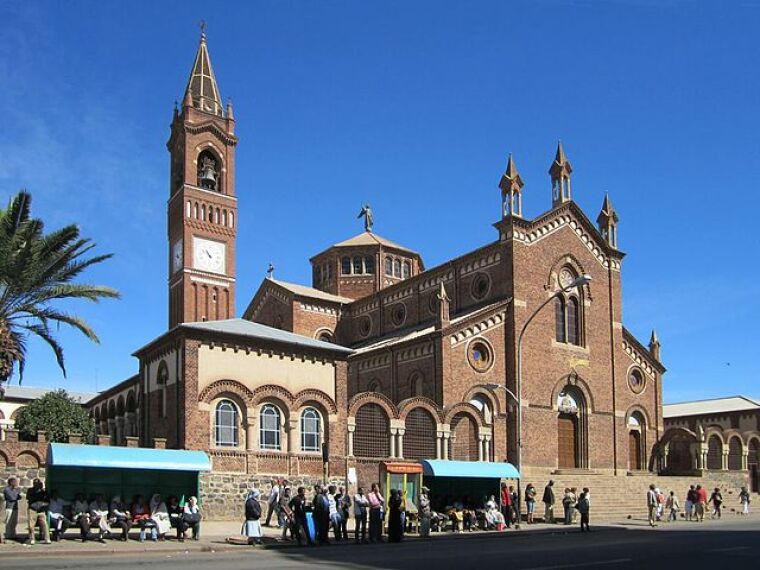Most of harassment against Christians in 2015 occurred in Christian-majority countries, says Pew report

A study conducted by Pew Research Center has indicated that while Christians are facing persecution in the Middle East, most of the harassment against them in 2015 actually occurred in Christian-majority countries.
A recent report published by Pew has revealed that Christians have faced harassment in more countries than any other religious group due in part to their huge size and broad geographic dispersion around the world.
Although Christians experience persecution in many of the heavily Muslim countries in the Middle East and North Africa, they are mostly harassed in Christian-majority countries, according to Pew.
The study noted that in some countries, the Christian majority itself faced harassment, often carried out by the government.
In Nicaragua, where about 59 percent of the population is Catholic, the Catholic Church has reported that the government has monitored its emails and telephone conversations.
The government has reportedly granted financial support for churches based on the clergy's political affiliation. The Catholic Church claimed that the government has undermined the church's religious authority by using Catholic traditions and symbols to promote political agendas.
In other Christian-majority countries, those who belong to minority denominations have been targeted for harassment.
In Eritrea, where Eritrean Orthodox Christianity is the dominant faith, Jehovah's Witnesses have been prohibited from obtaining official identification documents.
According to Pew, the majority of the prisoners in Eritrea in 2015 belong to Protestant denominations such as Pentecostals and evangelical Christians.
Pew's annual study on global restrictions on religion has indicated that government restrictions and social hostilities related to religion increased in 2015 for the first time in three years.
As many as 40 percent of 198 surveyed countries registered "high" or "very high" levels of overall restrictions, which was up from 34 percent in 2014.
Twenty-five percent reported "high" or "very high" levels of government restrictions in 2015, which was up from 24 percent in 2014. A total of 27 percent had "high" or "very high" numbers of acts of religious hostility by individuals, organizations or groups, which is a significant increase from 23 percent in 2014.
The report indicated that Egypt had the highest levels of government restrictions on religion, while Nigeria had the most social hostilities toward it.
Katayoun Kishi, the primary researcher on the study, said that it is too soon to tell whether the increase is a blip or a trend.
"I think we'd have to wait and see till next year whether or not this trend continues or if this is sort of a one-off just because it is such a modest increase," she said.
 Christians don't have to affirm transgenderism, but they can’t express that view at work: tribunal
Christians don't have to affirm transgenderism, but they can’t express that view at work: tribunal Archaeology discovery: Medieval Christian prayer beads found on Holy Island
Archaeology discovery: Medieval Christian prayer beads found on Holy Island Presbyterian Church in America votes to leave National Association of Evangelicals
Presbyterian Church in America votes to leave National Association of Evangelicals Over 50 killed in 'vile and satanic' attack at Nigerian church on Pentecost Sunday
Over 50 killed in 'vile and satanic' attack at Nigerian church on Pentecost Sunday Ukrainian Orthodox Church severs ties with Moscow over Patriarch Kirill's support for Putin's war
Ukrainian Orthodox Church severs ties with Moscow over Patriarch Kirill's support for Putin's war Islamic State kills 20 Nigerian Christians as revenge for US airstrike
Islamic State kills 20 Nigerian Christians as revenge for US airstrike Man who served 33 years in prison for murder leads inmates to Christ
Man who served 33 years in prison for murder leads inmates to Christ


 Nigerian student beaten to death, body burned over ‘blasphemous’ WhatsApp message
Nigerian student beaten to death, body burned over ‘blasphemous’ WhatsApp message 'A new low': World reacts after Hong Kong arrests 90-year-old Cardinal Joseph Zen
'A new low': World reacts after Hong Kong arrests 90-year-old Cardinal Joseph Zen Iran sentences Christian man to 10 years in prison for hosting house church worship gathering
Iran sentences Christian man to 10 years in prison for hosting house church worship gathering French Guyana: Pastor shot dead, church set on fire after meeting delegation of Evangelicals
French Guyana: Pastor shot dead, church set on fire after meeting delegation of Evangelicals ‘Talking Jesus’ report finds only 6% of UK adults identify as practicing Christians
‘Talking Jesus’ report finds only 6% of UK adults identify as practicing Christians Mission Eurasia ministry center blown up in Ukraine, hundreds of Bibles destroyed: 'God will provide'
Mission Eurasia ministry center blown up in Ukraine, hundreds of Bibles destroyed: 'God will provide' Church holds service for first time after ISIS desecrated it 8 years ago
Church holds service for first time after ISIS desecrated it 8 years ago Burger King apologizes for 'offensive campaign' using Jesus' words at the Last Supper
Burger King apologizes for 'offensive campaign' using Jesus' words at the Last Supper Uganda: Muslims abduct teacher, burn him inside mosque for praying in Christ’s name
Uganda: Muslims abduct teacher, burn him inside mosque for praying in Christ’s name